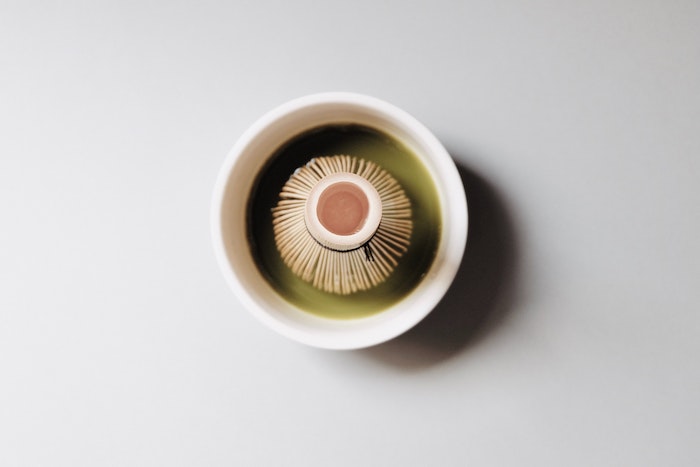
Unless you’ve been living under a rock the last few years, you probably noticed that matcha tea is having a moment–and it’s no wonder! With its supremely delightful earthy flavor and explosive nutritional value, this super-concentrated green tea deserves every bit of praise.
Ahead, five ways matcha can improve your physical and mental health.
Matcha vs. Other Green Teas
Before we dive into the nutritional benefits, it’s important to note that, while matcha is a type of green tea, it’s different from our most familiar tea types (the loose-leaf or comes-in-a-bag ones).
While standard kinds of green tea are prepared as an infusion (steeping tea leaves in hot water), matcha is made by crushing whole tea leaves into powder, which can be whisked together with hot water for consumption.
Why is that important? Because, when you drink matcha, you’re not just getting residual benefits of an herbal infusion; you’re getting a concentrated dose of all the nutritional goodness our friend the Camellia sinensis tea plant has to offer.
Let’s talk about the benefits of matcha
Antioxidants
Matcha’s greatest asset is probably its high concentration of antioxidants called catechins. Antioxidants help to counter free radicals, which are imbalanced, reactive atoms that come from our environment and metabolic processes and can wreak havoc on our healthy cells.
Liver Protection
The liver is an integral part of our digestive system and a key player in detoxification. It’s no surprise, then, that as your risk for conditions like obesity and type II diabetes increase, so do your chances of developing liver disease.
Studies of green teas, like matcha, have promising results for the treatment and prevention of liver disease (and other dangerous liver problems) because green tea may boost your liver’s ability to metabolize lipids.
Cognitive and Emotional Balance
Although more human studies are needed to grasp exactly how beneficial matcha is for our cognitive health, some preliminary research has shown that it can bolster short-term cognitive abilities, like attention and psychomotor speed (which affects things like hand-eye coordination), and studies in mice have shown that matcha can actually help to regulate and improve brain function in individuals with cognitive impairment related to metabolic imbalances (like diabetes).
Matcha is also known to be a mood- and energy-booster, due in large part to its high concentration of the amino acid L-theanine, which, studies have shown, can be extremely beneficial to individuals who suffer from perpetual high anxiety.
This study, which showcases matcha’s ability to slow cognitive decline in otherwise healthy elderly females, is also an exciting development!
Heart Health
Although not much research has been conducted on the connection between heart health and matcha, specifically, evidence abounds for the positive impact green tea can have on the heart.
Due to its anti-inflammatory, antioxidative, and lipid-balancing properties (along with a whole host of other nutritional bells and whistles), green tea is known to decrease your risk of heart disease.
xx, The FabFitFun Team





